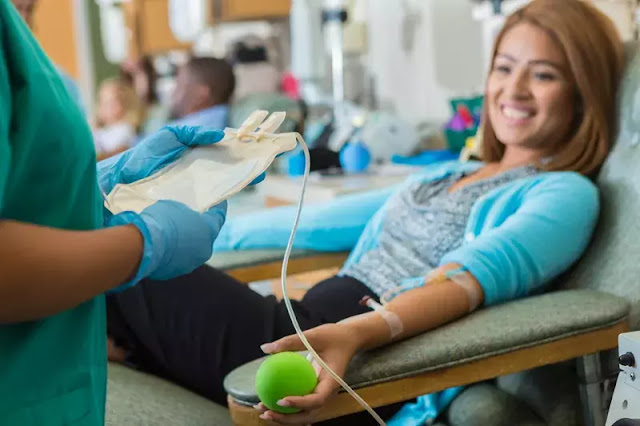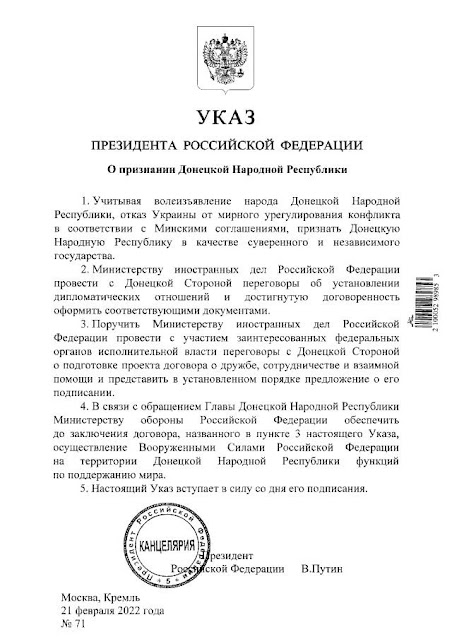Can I donate blood during pregnancy?
When you know that you are pregnant, you might immediately start wondering what lifestyle changes do you need to make. There is food you have to wait for and the activities you might have to do for now. If blood donors are something you take regularly, or if you have recently been interested in donating blood, you might wonder if you can donate blood with a baby.

As charity because blood donors, you really need to survive all your own blood during your pregnancy. Maintaining your high blood cell number is important for you and your unborn baby.
Donate blood during pregnancy
Pregnant people do not qualify to donate blood. "They need all their blood and iron to help them stay healthy during their pregnancy," said Felice Gersh, MD, OB / Gyn award-winning that specializes in all aspects of women's health, and the founder / director of the Integrative Medical Group Irvine, in Irvine , Ca.
Iron is an important mineral that the body used to make hemoglobin. Hemoglobin brings oxygen to all parts of the body, which helps grow and develop. Someone who does not have enough iron to produce the number of hemoglobin needed by their body has iron deficiency anemia.
Pregnant people are between the highest risk group for iron deficiency anemia. During labor, a large amount of blood loss occurred.
"For vaginal delivery, it's common for 500 milliliters of blood loss or more and for the Caesarian section, it's common for 1,000 milliliters of blood loss or more," said Taylor Graber, MD, San Diego - anesthesiologist based at the University of California San Diego and owner of mobile IV hydration company.
Iron is needed for the development of the fetus, to support the growth of the placenta, and to increase the number of pregnant red blood cells. "Women who are pregnant often become iron deficiencies and must increase iron intake and of course unable to have iron removed from their bodies by contributing blood," said Dr. Gersh.
Every pregnancy is different. Be sure to consult a health care provider about your situation if you have questions about donating blood while pregnant.
Is it safe for babies?
Donate blood is not safe for unborn babies for spending iron, important minerals for fetal development. Low iron during pregnancy can cause problems such as low birth weight, premature birth, and birth to death. "Babies need a lot of iron during their development and growth and should not have to be reduced by the iron environment," explained Dr. Gersh.
Why you should not donate blood during pregnancy
Donate blood is not safe for parents who expect and their unborn child. These risks exceed the benefits of contributing blood, such as adding safe and available blood storage for use in transfusion. During pregnancy, you have shared your blood with your developing baby, and you won't have free again.
How does the blood transfusion in NICU work?
The risk of contributing blood during pregnancy
People who are pregnant are at an increased risk of iron deficiency anemia. Low iron puts your baby at risk and can also cause side effects such as fatigue, shortness of breath, headache, light and faint and faint (also known as syncope).
Faint
Iron deficiency anemia can cause spell fainting. In addition, if you donate blood while pregnant, Dr. Gersh said that there might be a substantial decrease in blood pressure from reducing blood volume, which can also cause fainting.
Fainting is very problematic during pregnancy because it falls can cause premature labor, placenta that separates prematurely from the uterine wall, and low oxygen levels in the fetus, which can be fatal.
Low birth weight
Low birth weight, which is less than five pounds of eight ounces, is another risk associated with iron deficiency anemia. Babies born on low birth weight face additional risks, including respiratory problems, jaundice, and a less developed immune system.
Premature birth
Not getting enough iron during pregnancy can put your baby at risk of being born prematurely. Premature babies can face health problems and suffer from cognitive problems later on.
Stillbirth
Iron deficiency has been associated with Stillbirth, which is a loss of pregnancy after 20 weeks.
When can I continue blood donations?
You can safely donate nine months of blood after you give, but not if you breastfeed. Breastfeeding mothers have to wait three months after their baby is weaned, or at least get most of their nutrients from solid food or formula milk. Gersh also recommends asking for health care providers if your iron content and the amount of blood return to normal before contributing blood again.
In the past, ever pregnant disqualifying you from ever donating blood again, but this is no longer the case. It is estimated that antibodies that pregnant people can produce when exposed to fetal blood can be harmful to the transfusion receiver, but this has been issued.
Secure pregnancy alternative
During pregnancy, you fully support new life. It has given a lot! If you still want to make a difference in their lives that need blood to donate to survive or cured, there are some things you can do but donate blood.
Financial donations
If you can't give blood, consider making financial contributions to the Red Cross or other bodies that work to save lives. They can use your money to help ensure those who need transfusions to make it, and to help in other medical or rescue efforts.
Hosts drive blood
Blood drive allows blood donations. If you have a large room where the blood drive can be set, you can host one. The Red Cross will provide staff, equipment, and trained equipment, as well as tools to help you plan and recruit. You need to recruit volunteers and donors to your blood drive.
Volunteer
Consider volunteers for the Red Cross or other agents who help people if you want to make a difference in the lives of others. You also don't have to be on the disaster team. There are many choices for volunteer jobs behind the scenes such as scheduling shift volunteers or supply team management.
A word from Verywell
Donate blood is not recommended when you expect. During pregnancy, you are at an increased risk of iron deficiency anemia. The right iron content is very important for the development of your baby and your own health. Donate blood to take care of iron, so it is not considered safe.
If you feel like to help others, you can find another way to contribute. You might also want to remind yourself that your blood is currently providing your child who has not been born with one hundred percent of their nutrition. On the one hand, you've "donated" blood. Reach your doctor if you have questions or concerns about donating blood during pregnancy.
Source: verywellfamily.com



Comments
Post a Comment